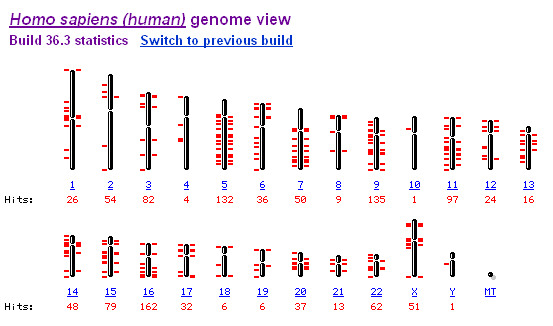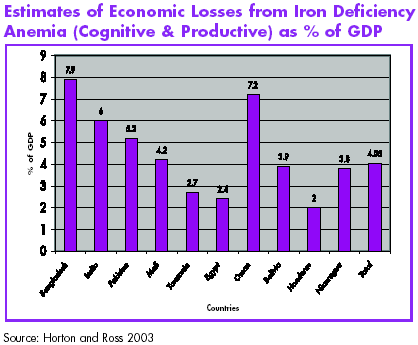ISSUES:
- "The diagnosis" in a patient with anemia can be complex. an unfocused or unstructured investigation of anemia can be costly and inefficient. Simple tests may provide important information. Anemia may be the sole manifestation of serious medical disease."
- Have there been economic impacts resulting from development of this biotech application? Yes

-
THE FIGURE ABOVE SHOWS THE GENES IN CHROMOSOMES EFFECTED BY ANEMIA
- The government should have an obligation to support biotech research! - THE FIGURE BELW SHOWS THE ESTIMATES OF ECONOMIC LOSSES OF ANEMIA

- We as a society decide questions of intellectual property and answers.
According to the U.S. National Library of Medicine and the National Institute of Health.
- Treatments on anemia patients improved patients well being and reduces the need for transfusions. Hypothesis show increased cardiac events and mortality with higher HGB targets and higher doses of (ESAS) Erythropoiesis-stimulating agents. Profits for dialysis facilities depends on charging insurers for medications.
John A. Robertson from The University of Texas says..
- According to The use of preimplantation genetic diagnosis (PGD) to screen embryos for aneuploidy and genetic disease is growing. New uses of PGD have been reported in the past year for screening embryos for susceptibility to cancer, for late-onset diseases, for HLA-matching for existing children, and for gender. These extensions have raised questions about their ethical acceptability and the adequacy of regulatory structures to review new uses. The article concludes that except for sex selection of the first child, most current extensions of PGD are acceptable, and provides a framework for evaluating future extensions for nonmedical purposes that are still speculative.
